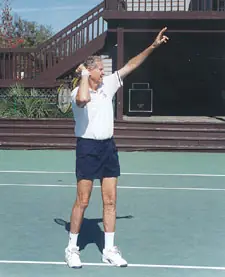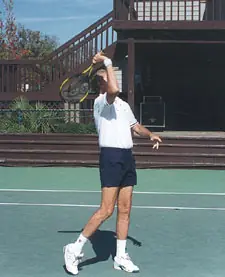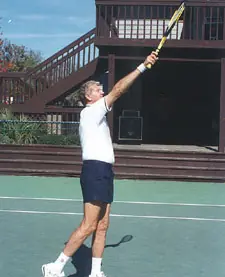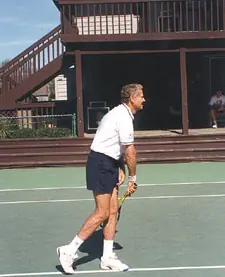Unless you are playing tennis at the highest level, one of the easiest ways to win a point is to give your opponent a deep high lob.
One of three things will happen.
The first possibility is that the overhead smash will probably go out. Or, secondly, your opponent may overcompensate and hit the ball into the net.
The third possible outcome is that your opponent may be successful at putting the ball away into the court with an overhead smash.
In this scenario, though, the lobber has a 2-to-1 advantage of success.
However, there is a way to hit an overhead that will never go out or into the net -- unless you mishit it.
The secret is simple geometry. Instead of hitting down at the ball, turn your body sideways and bring your racket behind your back using a simple hammer grip. Point your other hand up toward the sky to ensure your body is open and your racket shoulder is lowered.
Next, swing your racket straight up toward the sky. Fully extend your arm at about a 60-degree angle to the ground. This is the optimal point to make contact with the ball -- when your arm is fully extended with the apex of your momentum culminating at the full extension point.
Don't worry -- the ball won't go out of the court nor can it go into the net. At this angle, every ball hit from the net or close to the service line must go in the court.
Once this principle has been established then you can add the follow through and hit with more pace.
Give it a try on the practice court and see for yourself. Then put it into practice in your next match and work the odds in your favor.
 | ? |  |
| Step 1: Position your racket behind your back with your left hand pointing towards the sky. | ? | Step 2: Swing your racket up toward the sky to ensure your body is open and your racket shoulder is lowered. |
| ? | ? | ? |
 | ? |  |
| Step 3: The racket arm should be fully extended at a 60-degree angle to the ground at contact. | ? | Step 4: The follow through can be added once the upward concept has been mastered. |


